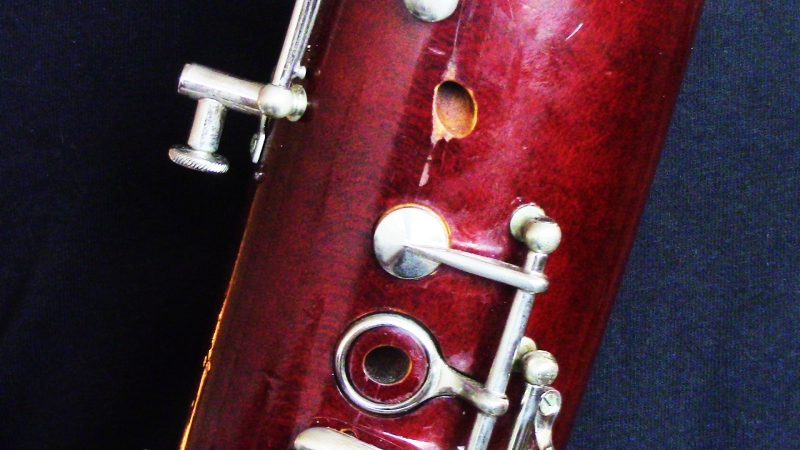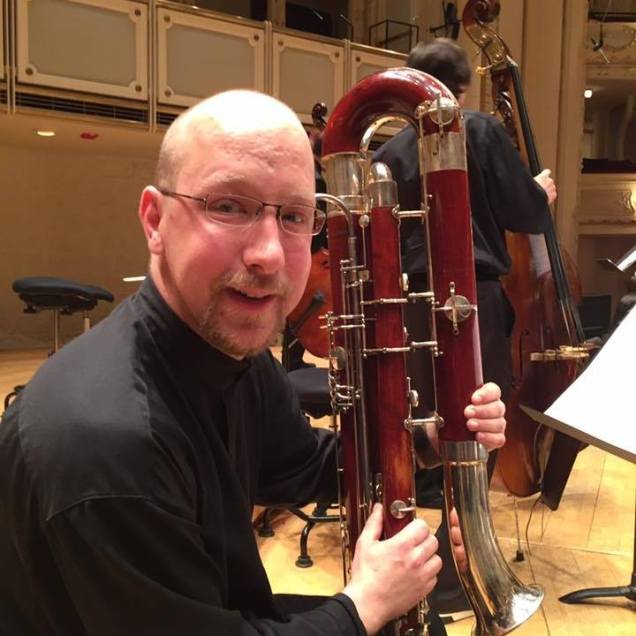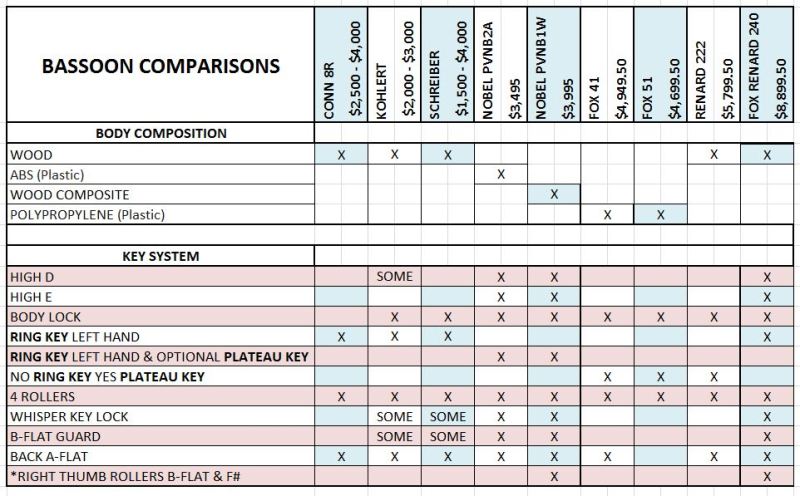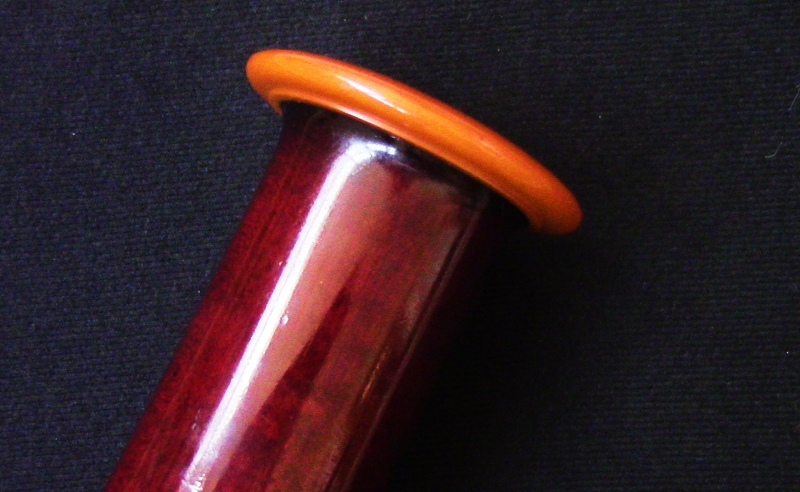In creating the Affordable Double Reed Instrument Series my goal has been to find the best instrument to meet your musical needs. As a firm believer in the importance of music education- this series is designed to help put the best bassoon available in a buyer’s hand.
My previous post focused on Mass Market New Bassoons for $5000 or Less. The post was designed for band directors, college class woodwinds courses, and buyers needing consistent high quality instruments in a hurry.
Brand New Nobel and Fox Renard instruments are available for purchase with the ease of a phone call and a credit card, offering delivery of a New Instrument within days.
Moving forward in the series, this week I would like to take a look at Used Bassoons. Used Bassoons are great for bassoonists that have the Time and Energy for a Good Hunt. Often there are great gently used bassoons available for less than $5000 in the Used Market- If you know what to look for and what to avoid.
A discussion of Used Bassoons under $5000 also opens the door to the discussion of many Maple Wood Bassoon Options. The Mass Market New Instruments discussed in my previous post that fell below $5000 or less were either plastic or wood composite.


Mass Market instruments are perfect to start beginners, fantastic for music programs that are looking for low maintenance instruments. But plastic will never resonate or vibrate with the tone colors quite like a maple wood bassoon can.
For buyers looking to buy their own personal instrument, a maple wood bassoon is often desired for tone colors and artistic potential.
I must admit… in my sound trials of the New Mass Marketed Bassoon, the Nobel Wood Composite PVNB1W (made of ground grenadilla and epoxy) came close to the tone colors offered by many maple bassoons. And, it definitely offered a greater variety of tone colors than the plastic instruments I tried. (Fox 41 and Nobel PVNB2A)
This is part of my reason for giving the Nobel Wood Composite Bassoon a solid recommendation in my previous post. And there is no fear of Moisture Damage because the Nobel PVNB1W is made of wood composite, features a lined bore, and lined tone holes that protrude into the bore.
But for bassoonists looking to buy a bassoon, swab and service it regularly- there is nothing quite like a Good Maple Bassoon.
Swabbing the bassoon after each use is vital for wood bassoons in the $5000 or less price range. Many of these instruments do not have the modern lined finger tone holes. Unlined Tone Holes in a used bassoon can lead to moisture damage (wood rot) if the joint is not swabbed after each use.


To be sure I effectively covered this week’s topic of Used Bassoons I sought the knowledge of bassoon repair specialist Chad Taylor.
Chad’s years of experience repairing both Well Made and Poorly Made Bassoons adds a deeper level of insight into finding an Affordable Quality Used Bassoon. He is generous with his knowledge and experience in working with all brands of bassoons. I have found Chad’s insight invaluable and thought you might, too.

The bulk of Chad’s work happens post-sale, repairing and servicing the instrument. Chad and I spent hours on the phone discussing instruments that were a Breeze to Service VS. those that Proved a Challenge due to poor workmanship in production.
If a bassoon is not manufactured well Chad can spend hours, days and sometimes weeks trying to rectify the initial poor quality. The challenges of a cheaply made instrument are sometimes simply not worth the trouble or the long-term added repair costs.
A bassoon that offers a cheap initial price tag may include expensive repair/upkeep costs, making it not such a good deal after all.
To help determine if a Used Bassoon is Affordable AND Quality, there are a few steps I take to set a used instrument sale up for success. I take these steps because an instrument is an investment- it is important to look into potential resale challenges Prior to Buying.
And a Used Bassoon means a previous Owner or Owners. Previous owners might not have taken the care you would have preferred while the bassoon was in their possession.
Now let’s dig into a Discussion of Used Bassoon Brand Options in the $5000 or Less Price Range.
Before we begin Please Take a Moment to Note the Following: Due to many manufacturer’s lack of attention to detail: not aging the wood properly, poor key work, etc. I am consciously choosing to not discuss a few brands you may be familiar with. Don’t worry- I am aware these brands exist. 🙂
I do not mention these brands in order to stay true to My Goal of Affordable Quality without Distraction.
Comparisons in the Affordable Instrument Series are created only to inform and aid in matching the best bassoon to the individual needs of the music program and bassoonist.
When looking for a Quality Used Bassoon I start with the instrument brand. Then I follow up with information on the model number and serial numbers. This information can be a great asset in finding a bassoon manufactured to have an even scale and a variety of tone colors. It is not a guarantee but it can aid in narrowing the initial search when hunting for an Affordable Quality Used Bassoon.
To help aid in finding the best match for you and your needs I’ve added Used Bassoons to the Original Comparison Chart from my previous post. This gives a quick view and comparison of Body Type, Key Work and Cost.

As you can see from the chart, a few of Chad’s and My Favorite Used Bassoons include the Fox Renard 222, Conn 8R, and many of the old Kohlert Bassoons.
Every now and then I have come across a good Schreiber Bassoon. But it is worth noting that the manufacturing of Schreiber Bassoons has been inconsistent over the years. The Schreiber company changed ownership quite often and quality was not always maintained.
I must admit that I love the older instruments for their unique features – like plastic bell rings that were originally off white. Over time the plastic has aged and turned orange!

Like all bassoons I have on trial, I like to try Schreiber Bassoons with multiple bocals. This allows me to get a sense of and feel for any inconsistencies when playing up and down the chromatic scale. I can also explore tone, intonation, and stability, especially on notes that need venting.
Many Schreiber bassoons are not easy to adjust or alter, so it’s especially important to check for initial quality in these instruments.
Whenever I start the hunt for a Quality Affordable Used Bassoon- the first brand and model of instrument I try to find is a gently used Fox Renard 222.
High D and High E keys can always be added to the Renard 222 for a small fee. And the lined bore and lined tone holes mean there is minimal chance of wood rot!

Another bonus of the Fox Renard 222 is the initial low cost of the instrument. Starting with a lower purchase price means a lower resale price. This will usually generate a price tag that falls within my $5000 goal price point.
Sidenote: As I was testing bassoons for this series and recording sound clips, the Fox Renard 222 truly shined. I enjoyed it so much that I featured it in the opening musical introduction in my last two YouTube Videos.
Not listed on the chart (to avoid redundancy) but worth noting are the Old Conn Plastic Polypropylene Bassoons. These bassoons were manufactured by Fox Renard and sold with a Conn label. The old Conn Plastic Bassoons have the same key work as a Fox 41. Usually they only require a few pad replacements, a key oiling and they are ready to play. And, the lack of a Fox Renard label on the bell can sometimes mean a lower price tag!
The Conn 8R wood bassoon is worth mention as it is modeled after an 8000 Series Heckel Bassoon. Conn traded the (new to their era) Strobe Tuner for a few Heckel Bassoons. Conn then researched and modeled the 8R after the Heckel, producing Conn’s best bassoons.
The Old Kohlert Bassoons are overall more reliable in manufacturing than the Schreiber Bassoons. Often the scale is more even and there is less of a challenge in servicing the instrument for repair. Sometimes these instruments will not have a brand name stamped on the bell and it will take a little bit of added research to determine the brand.
These are a few of my favorite brands but always remember that every bassoon is unique. I have tried a lot of great bassoons from trusted manufacturers and a lot of bad bassoons from the same manufacturer.
I wish I could say, “Buy This Wood Bassoon and You’re Guaranteed it Will Be Great!” But I can’t. This is because wood is a variable. It is important to remember: Just as every tree is unique, so is every wood bassoon.
My Heckel Bassoon Journey is a great indication of just how unique each bassoon can be. Prior to buying my 10,000 series Heckel I tried between 15-20 instruments. It took trying that many to find an instrument that had an even scale and tone colors that matched my artistic voice. And even then, it still had wood rot and other issues that needed repair.
Unfortunately finding a bassoon is not a one size fits all.
And Remember: if you have an instrument that you love and is meeting your needs – Stick With It! Just because your bassoon isn’t my favorite brand and model doesn’t mean that it isn’t the right bassoon for you. My favorites are based on my experiences. You may have found a diamond in the rough.
I hope by sharing Chad’s and my favorite used bassoon brands, a bit of their history and the steps I take when looking for Affordable Quality in a used bassoon for less than $5000- bassoonists can find the best match for their unique needs and goals.
I’d love for you to leave me a comment about what brand and model bassoon you are playing. It’s fun to hear what everyone enjoys and the variety of instruments available worldwide.


I generally agree with your list, but have a success story that can be repeated: Visiting Forrest Music and finding a 1997 Oscar Adler orchestra model in excellent condition and play-ability – the horn was on consignment at a very attractive price. I would offer that Oscar Adler can make a very fine instrument worthy of consideration. I am 78 years old and did not play for 52 years between college and retirement – purchasing the instrument in 2012 and playing it since in a New Horizons Band with real satisfaction.
I found your YouTube by accident very recently and both enjoy and appreciate your info and comments and will continue to review the posts!
LikeLike
Hi, I’ve recently picked up a older serviced Kohlert bassoon for my band program. Now we have the challenge of finding a fingering chart that will match it. Have any idea of where I might be able to locate such a resource?
LikeLike
Congratulations on the new bassoon. I do not have a bassoon fingering chart on my website but I do have a video on beginning bassoon fingerings and getting started quickly and easily. Here’s a link: vElk400EM”>https://www.youtube.com/watch?v=8gvElk400EM
LikeLike
I’ll share my story about purchasing a used bassoon under 5k…
I agree that, yes it will cost more money than the price tag! I got a $4000 3000 series (1890’s) Heckel bassoon. Not a dream bassoon but works for me because I am under the guidance of a professional teacher, and have studied music in college and now am a pro-am bassoonist (or hobbyist).
It was not an easy road. Instrument was in decent shape but cost me an additional $800 in initial repairs. I have also had to “learn” to play this instrument as it’s a bit finicky. I’ve had to also completely change my reed style. Luckily I can make my own reeds, but I have had to start over on my reed making progress since I’m using a completely different reed making process.
I would not have been able to make this purchase without a reputable bassoon repairer, or a professional bassoon teacher, and it has taken a LOT of time to get accustomed to. Getting a bassoon for “cheap” really requires some knowledge!
LikeLike
I played Bassoon for 6 years in Middle and High School. I loved it. I had to rent my Bassoon from the school. My widowed mother had asked if I wanted one for myself; I declined, as they were not in our family budget. I do not remember what co. had made it. Ideas wood. My Orchestra teacher taught me how to carefully care for it. It was Mahogony. It had such wonderful tone. I was invited to join our town’s junior Symphony Orchestra. I am so glad you wrote this article.
Thank you. Unfortunately, even at 5000.00 our family budget could not afford one.
But I have precious memories. O like that you are watching out for those who can and can be able to get good proper instruments.
LikeLike
This warmed my heart. Thank you for sharing.
LikeLike
I noticed you have not listed the Renard long bore Model 220. I used it for a number of years in minor orchestras (i.e., Fort Myers Symphony). I have reached an age where I do not play anymore. It is in excellent condition. Is there a market for resale on this model?
LikeLike
Yes, many bassoonists would be happy to buy your Model 220. It might be good to market it to a double reed company so that they can make sure that it is in tip top shape and then help you sell it. You could also look to sell the instrument independently on many of the forums online. Send me a private message if you need help through my website. Good Luck!
LikeLike